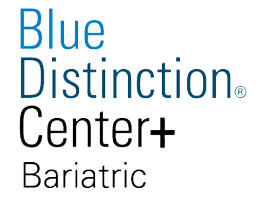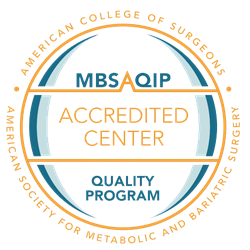Making Weight Loss Last a Lifetime
By: Dr. Rodrick D. McKinlay, MD, FACS

Learn more about weight loss surgery at Rocky Mountain Associated Physicians www.RMAP.com (801) 268-3800
“You can achieve your weight loss goal. Achieving your goal requires diligence, adherence to eating guidelines, frequent exercise, and a positive mental attitude.”
During the first year after weight loss surgery, most patients are thrilled with the results. They see pounds melt away; drop clothing sizes, and take fewer medications. The weight-related health conditions that once plagued them improve or go away entirely. Underneath the excitement, however, lurks a question that belies a deep-seated fear: can these results really last a lifetime? As time goes on, is weight gain inevitable?
Many patients find that at least a little bit of hunger creeps back into their lives a year or more out from surgery. Old cravings may pop up. This is a critical time to take stock of the exciting progress that has been made, and to re-commit to the habits that brought on that success.
The good news is that the weight loss you experience as a result of surgery can last a lifetime. But it is essential that your entire lifestyle changes, not just a few eating habits. Below are five steps to making sure your weight loss lasts a long time:
- Develop sustainable eating and exercise habits during the first year after surgery
- Maintain these habits by incorporating them into your lifestyle so that they are a part of who you are
- Be aware of life events that can change your routine and develop a plan to meet the new challenges
- Recognize saboteurs for who and what they are
- Seek support
Develop sustainable eating and exercise habits during the first year after surgery. You cannot hope to maintain your new dietary and exercise habits if they are not sustainable. In other words, you need to enjoy the new way of eating (as hard as this may sound at first) and exercising. For example, eating should not be so difficult that you are either looking for ways to avoid eating or just plain don’t like eating. If this is happening, talk to your doctor, a dietician, or one of our medical assistants about how you can modify the way you eat, so that it is a pleasant experience. You should be able to enjoy eating even though you are following some simple rules: never eat more than a six ounce meal, limiting snacks to high-protein 1-2 ounce size, and avoiding high-sugar drinks. Similarly, exercise should not be a burden. Do not try to over-do it. Mild to moderate cardiovascular exercise, such as a brisk 2-mile walk 4-5 times a week, is extremely healthy. This is just as good for your system as running at a faster pace, and may be more sustainable. The point is that you should develop as exercise program that you enjoy, so that you will be able to continue it long into the future.
Maintain these habits by incorporating them into your lifestyle so that they are a part of who you are. As you maintain these habits, you will discover that they become part of you. Your choices for activities will likely become more diverse. Hiking, biking, running, swimming, or skiing can become a healthy part of your life now, whereas they could not before surgery because of excess weight. Involving your family in these activities will also help make them sustainable. In like manner, changing to a healthier menu for the entire family will help everyone eat better and make dietary changes more sustainable. Another way to ensure that you are not “slipping” with your dietary choices is to frequently refer to the binder (sometimes called the “blue bible”) you received at the time of your surgery. Make it a point to read it every few months and you won’t go astray.
Be aware of life events that can change your routine. Even the best of routines can be disrupted by unanticipated or dramatic life events. For example, a death in the family, a new job, a move to a new location, any accident or injury, or the arrival of a new baby can make it difficult to stick to the healthy lifestyle that you have developed. The important first step to meeting these challenges is to recognize that they have disrupted your routine. These significant life events place new emotional and physical demands upon you, so it is not easy to adjust. But you can do it. Make a plan; write it out if necessary, so that you can maintain your new healthy lifestyle.
Recognize saboteurs for what they are. A saboteur is someone who is trying to undo or sabotage your efforts at weight loss. Saboteurs can be family members, co-workers, or other acquaintances. A saboteur can even be yourself if you find negative thoughts running through your head! Often saboteurs may appear to have good intentions, but understand that if they are trying to get you to eat more than you out to, or to eat the wrong kinds of foods, they are not helping with your overall health goals. Simply saying “no thank you” is usually sufficient, but do not be afraid to explain how important your goals are to you.
Seek support. To incorporate each of the preceding concepts in your life, you will benefit greatly by having a support group. Family and friends are the most important support group you can have. They will be with you through thick and thin (pardon the pun!) as you develop and maintain habits leading to a healthy lifestyle. Make sure your family and friends know how important your health goals are to you. RMAP offers support groups monthly at St. Mark’s Hospital as well as in Ogden, Brigham City, and American Fork. Please take advantage of these meetings. Individuals who have been through what you are going through can offer unique advice that can reassure and motivate you.
Maintaining weight loss is not only possible, it is enjoyable, as you develop sustainable eating and exercise habits, meet the new and demanding challenges that life brings, and receive ongoing support from friends and family.
About the Author:

Dr. Rodrick D. McKinlay, MD, FACS, joined Rocky Mountain Associated Physicians (RMAP) in 2004 as a board certified general surgeon with expertise in minimally invasive or laparoscopic surgery. In addition to the surgical treatment of obesity, his practice involves a wide range of minimally invasive gastrointestinal surgery, including hernia repair, gallbladder removal, anti-reflux surgery, and the surgical treatment of spleen and adrenal disorders.
www.RMAP.com
Rocky Mountain Associated Physicians
801-268-3800
1160 East 3900 South, Suite 4100
SLC, UT 84124













 Address: 1521 East 3900 South STE 100
Address: 1521 East 3900 South STE 100 Office: +
Office: +  Fax number (801) 268-3997
Fax number (801) 268-3997 Email: info@rmapinc.com
Email: info@rmapinc.com



